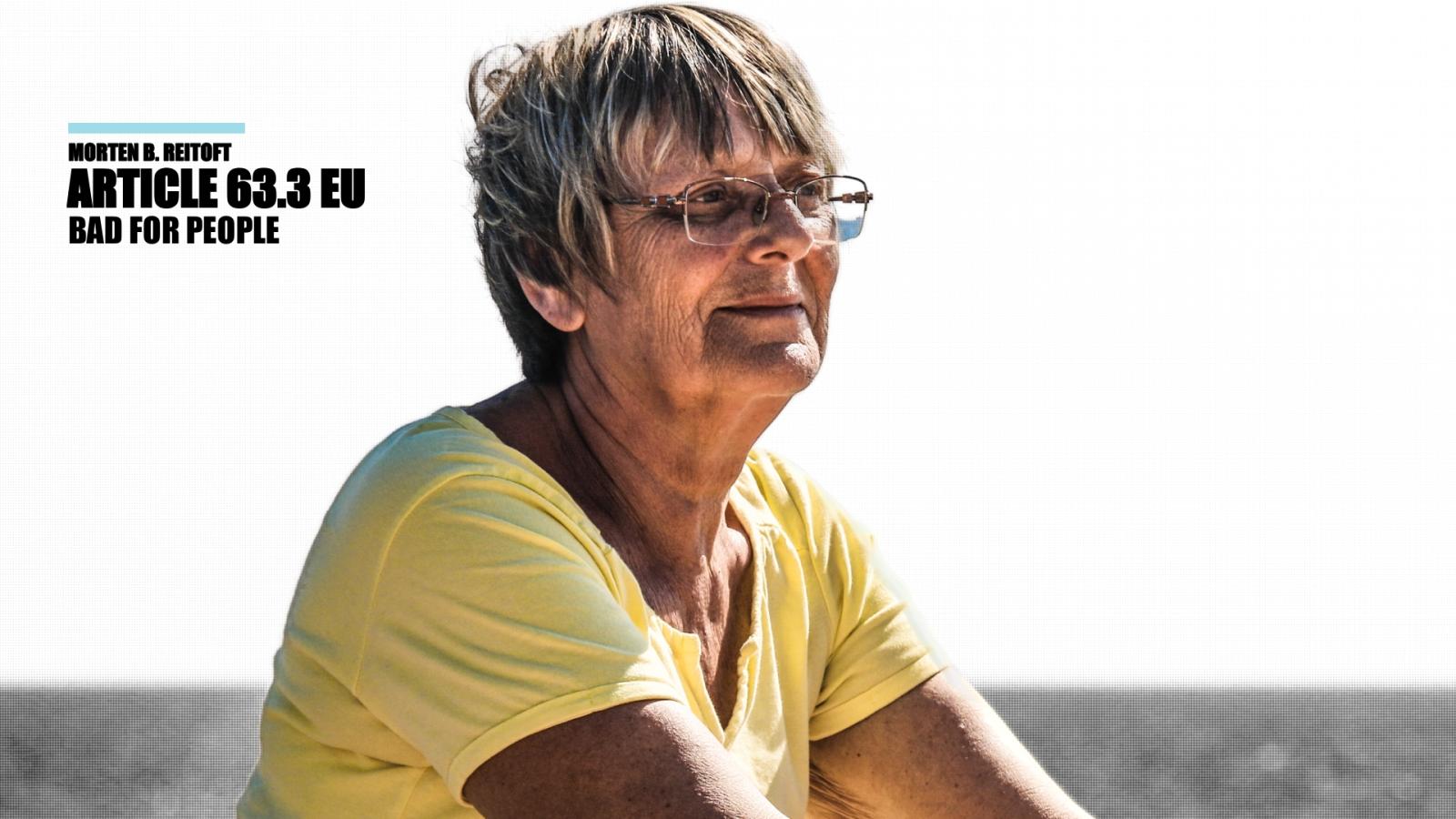
By Editor Morten B. Reitoft
My mom was born in 1945 and has always been active as a nurse. Before she retired, she managed an elderly home and more than 400 employees. She used MS Word, Excel, and other software at a relatively high level. My mom is still active and is a volunteer in her neighborhood, helping other people as much as she can. My mom is in many ways well functioning; however, her memory, particularly her ability to use IT, saturates. My mom also has migraines and, therefore, takes different types of medication. Imagining her using a QR code to read the inlays of the medicine is a joke. My siblings and I already help with almost everything that relates to IT - from banking to official emails and everything in between. Do she and other people I know use the inlays a lot? Probably not, but if you are old, sick, or in a situation where you need rapid answers to the effects of your medicine, using electronic means is not OK.
My wife is a nurse. She is a specialist in Chronic Obstructive Pulmonary Disease. When people have this disease, they take medicine, use different medical devices, and generally speaking have limited life quality and maybe even less a surplus in life to struggle to find answers using QR codes and computers.
When the European Union suggests making inlays electronic instead of on paper, this is a disgrace to the people who need this information - but it's also a disgrace to the general public. Everybody can get sick, and everybody can be in positions where access to information can't be dependent on whether you have a phone or a computer - or even an active connection, to get information that can be vital. It's also a disgrace as it serves no purpose. The cost of producing the inlay is so marginal that this will not influence consumer pricing, so who is the EU supporting with this law? Nobody but the pharma industry.
To have information available on both paper and electronically is already a fact, so my recommendation is status quo. We don't need to change anything here. The inlays have a nominal cost and zero damage to the consumer (on the contrary), and the alternative is worse.
We will ask 'Ældresagen,' 'Dansk Sygeplejeråd,' and the doctor's organization 'Yngre læger,' in Denmark to raise their voice against the EU on this matter, and I recommend that you all do the same in your countries!
--
Thu February 16th
Le Kodak Prosper 520 ul...
La valeur réelle en numérique n'est pas la technologie d'impression que vous choisissez. Le vrai différentiateur est entre vos oreilles !
Fri October 15th
Beaucoup de preuves ...
What The Papers Say-Week of October 11-By Nessan Cleary
Fri October 8th
L'Australie ressent ...
What The Papers Say-Week of October 4th-By Nessan Cleary
Fri October 1st
La couverture de cet...
What The Papers Say-Week of September 27th-By Nessan Cleary
Fri September 24th
Autres signes de cro...
What The Papers Say-Week of September 20th-By Nessan Cleary
Tue September 21st
The peak performance...
INKISH couvre l'événement, et ne peut pas attendre pour rencontrer l'industrie est peut-être le premier événement physique en Europe:-) ...
Fri September 17th
Il y a de bonnes nou...
What The Papers Say-Week of September 13-By Nessan Cleary
Sat September 11th
Questions relatives ...
What The Papers Say-Week of September 6th-By Nessan Cleary
Fri September 3rd
Cette semaine, les h...
What The Papers Say-Week of August 30th-By Nessan Cleary
Fri August 27th
Les chercheurs trouv...
What The Papers Say-Week of August 23rd-By Nessan Cleary
S'abonner
Recevez une notification pour vous abonner à notre newsletter
Connexion
Nouvel utilisateur? Inscription
Réinitialisation du mot de passe
Inscription
Utilisateur existant? Connectez-vous ici
Connectez-vous ici
Réinitialisation du mot de passe
Veuillez saisir votre adresse e-mail enregistrée. Vous recevrez un lien pour réinitialiser votre mot de passe par e-mail.
Nouvel utilisateur? Inscription